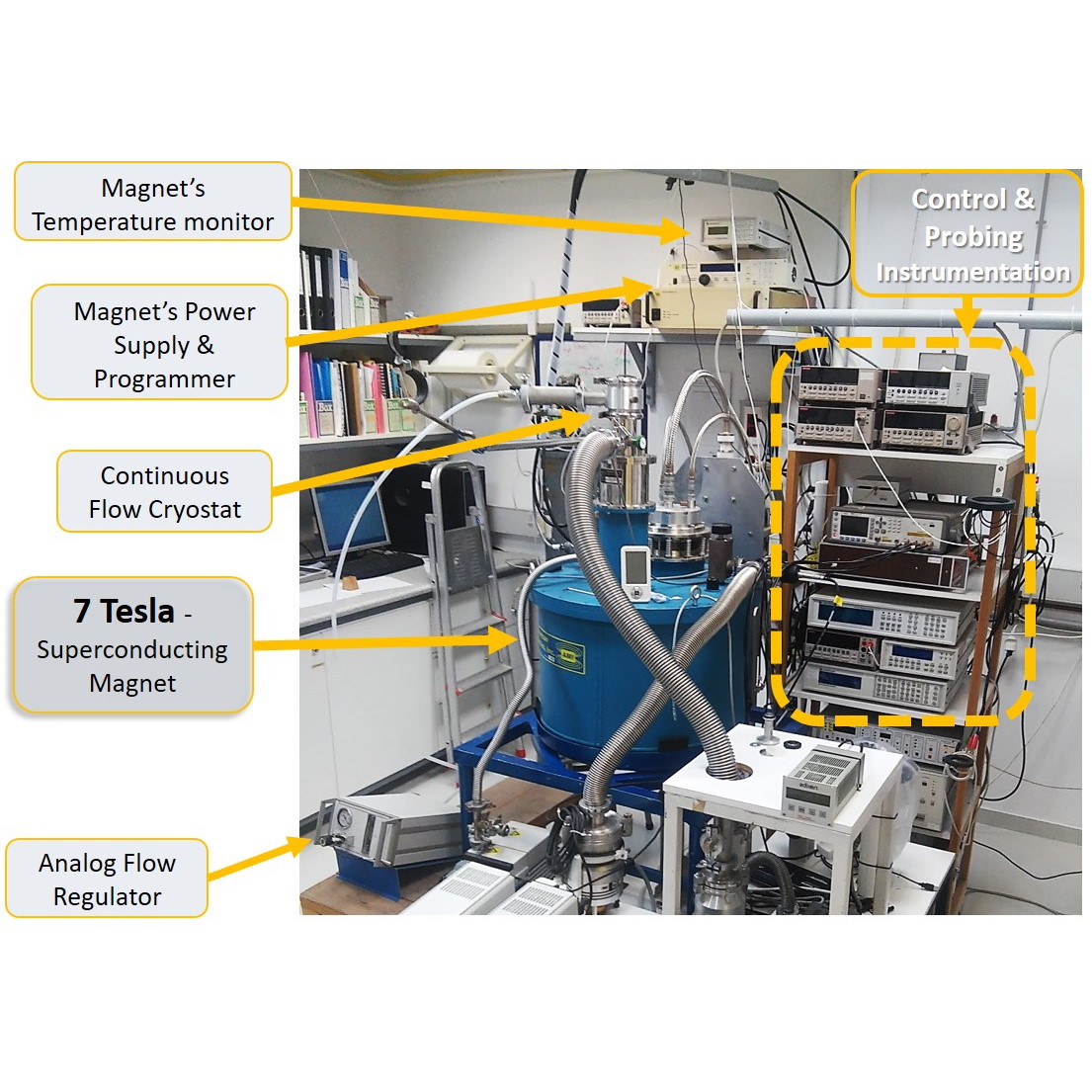The facility provides a modular experimental station to study the electrical characteristics of energy materials (e.g. electrode materials for Li/Na-ion rechargeble batteries), and beyond that the evolution of electric and magnetic dipole orders, as well as their degree of coupling, which is an identifying feature of a novel magneto-electric systems (e.g. sensors, high-capacity four-state logic memories etc.).
Applications:
This experimental station provides computer-controlled physical property measurements entailing a home-built modular sample environment offering to probe temperature (down to 2 K) and frequency (up to 2 MHz) dependent phenomena under externally applied electromagnetic stimuli (e.g. magentic fields up to 7 Tesla). It is equipped with custom-designed probes for mounting samples in various forms (e.g. polycrystalline pellet, single crystal, films), while the flexible integration of various types of digital measurement instruments allows automated data collection of physical quantities, including, Capacitance and Dielectric Loss, Voltage, Electric DC Current and Impedance etc.
Specifications:
Indicative capabilities include:
- low level sensitive measurements of current down to 10 aA (10 x10-18 A), electric polarization to charge levels down to 1 fC, very high resistance up to 210 PΩ (1018 Ω) and even I-V characteristics by a two-electrode configuration
- low noise voltage (down to 50 nV) measurements, characterization of low resistance/resistivity specimen by a standard four-wire setup (10 μΩ - 10 MΩ) and even Hall effects by Van der Pauw wiring
- impedance spectroscopy for precise measurement of capacitance and loss over a choice of frequencies, ranging from 50 Hz - 20 kHz, with a precision (AH 2700) bridge, and extended up to 2 MHz (with an option for DC-bias ±40 V), with an LCR meter (Agilent E4980A).
- continuous flow cryostat (T= 1.8-320 K)
- superconducting magnet (H= 0-7 Tesla)



